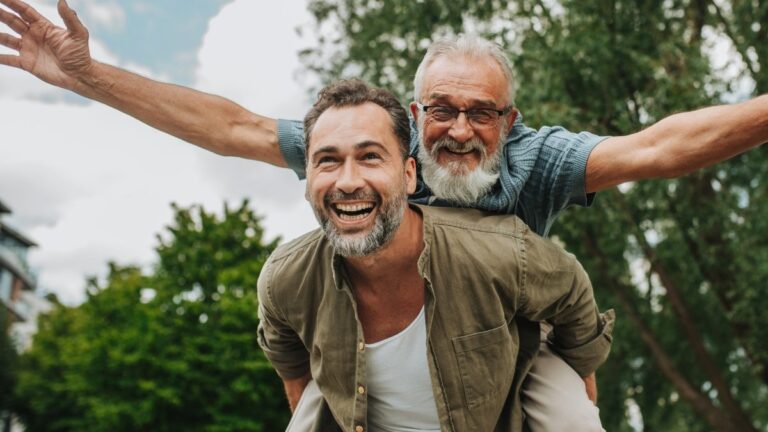12 Essentials To Remember for Senior Wellness

Aging isn’t just about adding years to your life. It’s about adding life to your years.
Many people try to stay healthy by focusing on one or two things, like diet or exercise. But true senior wellness is a much bigger puzzle. It is very easy to miss the other important pieces that support your physical health, keep your mind sharp, and maintain your social life.
This guide gives you a complete checklist of 12 essential pillars. Forget the scattered approach; this is your holistic plan for healthy aging. We will cover everything that matters for holistic wellness for seniors, from your mobility and nutrition all the way to finding purpose and staying safe.

🌟 12 Essential Pillars of Senior Wellness
Your complete guide to holistic healthy aging
🎯 The Complete Wellness Framework
👆 Click each pillar to explore actionable tips and key insights
Action Steps: Walking, water aerobics, or Tai Chi. The CDC confirms regular exercise prevents age-related health problems.
Practice: Stand on one leg (hold counter), walk heel-to-toe in a straight line.
Home Safety: Secure loose rugs, improve lighting, add bathroom grab bars.
Essential Screenings: Annual physical, vision & hearing tests, dental cleanings, bone density scans.
Vaccinations: Flu, shingles, pneumonia shots protect you effectively.
Focus On:
• Protein (maintains muscle)
• Calcium + Vitamin D (bone strength)
• Fiber (digestion & heart health)
Effects: Fatigue, dizziness, confusion, kidney strain.
Strategy: Keep a water bottle visible. Goal: Empty by lunch, refill, empty by dinner.
Annual Brown Bag Review: Bring ALL medications (prescriptions, OTC, vitamins, supplements) to your doctor/pharmacist.
The Key: Novelty matters more than repetition. Learn something NEW.
Ideas: New language, online class, musical instrument, complex recipes.
Your Toolkit:
• 5-minute guided meditation
• Deep breathing exercises
• Gratitude journaling
• Time in nature
Warning Signs: Persistent sadness, loss of interest in beloved hobbies.
Take Action: Talk to friends, family, or your doctor. In crisis, call/text 988 Suicide & Crisis Lifeline.
Be Proactive: Schedule regular calls, join local clubs, visit senior centers, volunteer.
The Science: Rush Memory and Aging Project shows high sense of purpose = better health outcomes.
Your Purpose: Volunteering, caring for a pet, gardening, teaching grandchildren. It doesn’t need to be world-changing—just meaningful to YOU.
Sleep Hygiene:
• Cool, dark, quiet bedroom
• Same bedtime/wake time daily
• If awake 20+ min, leave bed until sleepy
1. Make Consistent, Gentle Movement Your Priority
You might think senior fitness means difficult, high-intensity workouts. It really doesn’t. The most important part is just moving your body in a gentle way, but doing it consistently. You can forget the “no pain, no gain” mindset; that’s not the goal here.
This simple, daily mobility does great things for your body. It helps keep your joints flexible, protects your muscle mass, and keeps your heart strong. Most importantly, your ability to move freely is directly tied to your independence.
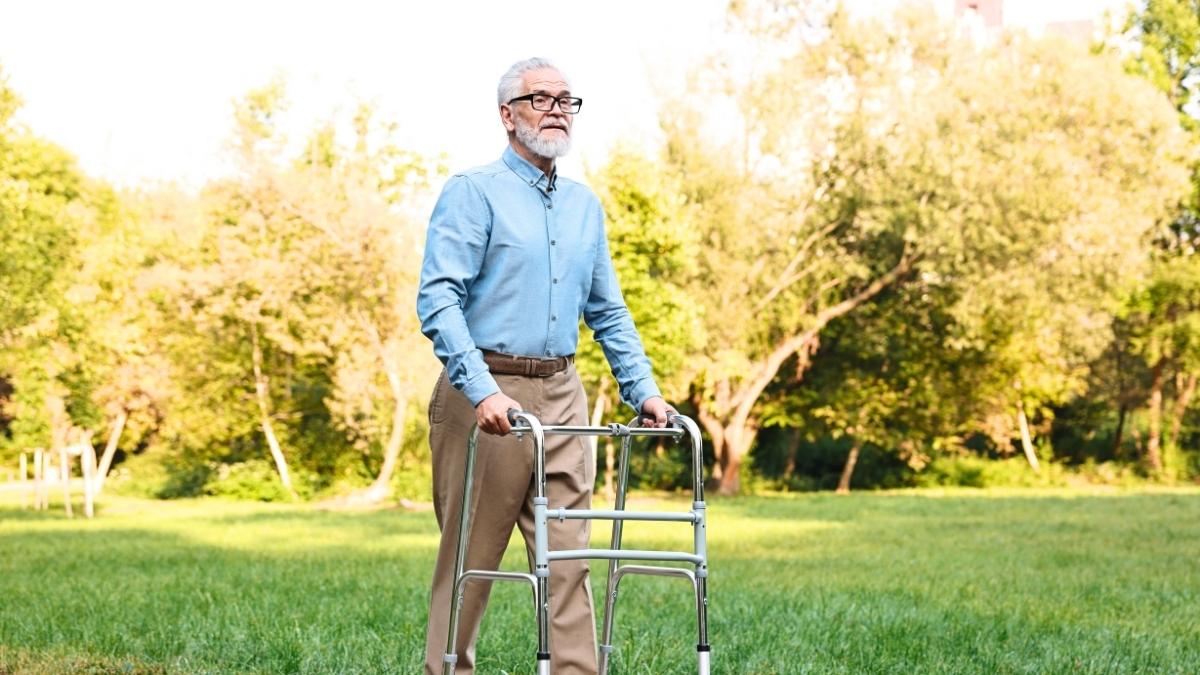
It’s easy to start. You can try walking every day, joining a water aerobics class, or practicing Tai Chi. The CDC even states that regular exercise can help prevent or delay many health problems that come with age. This simple habit is a powerful form of preventive care you can do for yourself.
2. Master Balance and Stop Falls Before They Happen
As we get older, a simple fall can become a very serious problem. The National Council on Aging reports that one out of four Americans aged 65 or older falls each year. This isn’t just bad luck; our natural sense of balance can get weaker over time.
The good news is you can fight back. Think of balance as a skill you can practice, just like any other. It’s not complicated senior fitness; it’s a specific, necessary skill for staying safe. You can practice simple moves right in your kitchen.
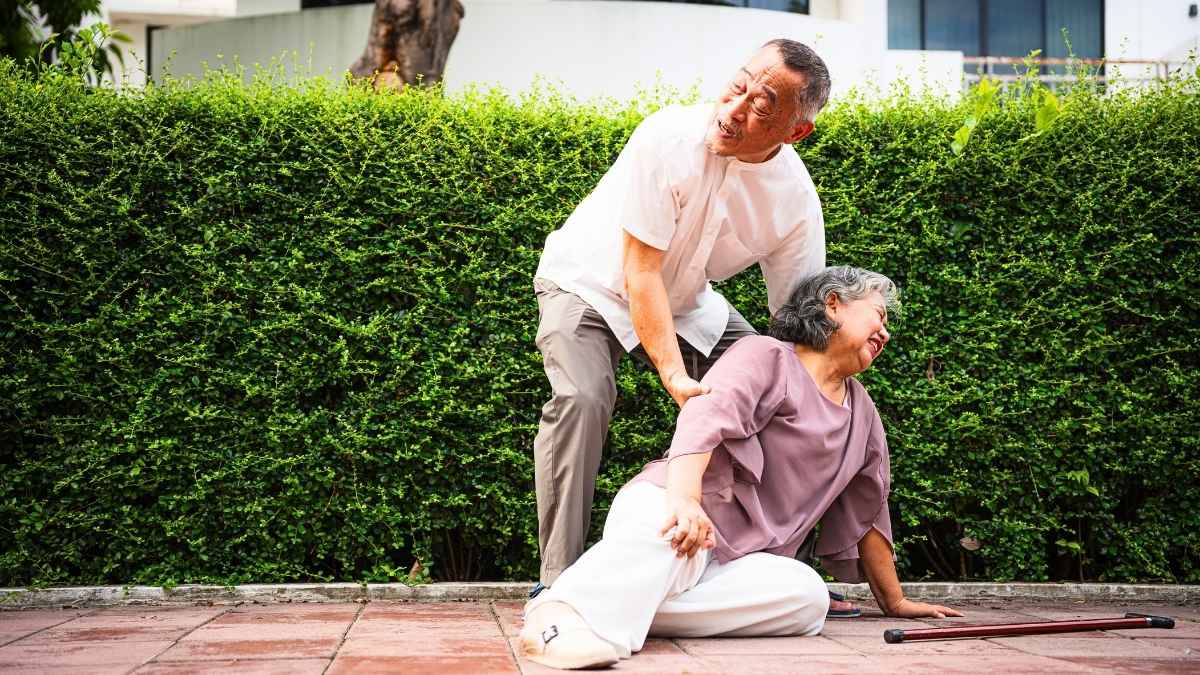
Try standing on one leg while holding onto a counter for support. Or, practice walking in a straight line, placing one foot directly in front of the other, heel-to-toe. These simple acts train your body and brain to be more stable.
Great fall prevention also starts at home. Look around for simple fixes. Secure loose rugs with double-sided tape, make sure your hallways are well-lit, and think about adding grab bars in the bathroom. These small changes remove hazards and give you more control.
3. Be Proactive with Your Preventive Healthcare
It is easy to only think about your doctor when you feel sick. But waiting for a problem is a reactive approach. True wellness means being proactive. You want to catch small issues long before they become big, life-changing problems. This is the whole point of preventive care.
Think of these screenings as the “check engine” light for your body. It’s always better to catch something early when it’s much easier to fix. This means showing up for your appointments even when you feel perfectly fine.

This includes your annual physical, of course. But it also means staying on top of your vision and hearing tests. It includes regular dental cleanings and asking your doctor about important screenings like bone density scans.
Vaccinations are also a key part of this plan. Getting your shots for the flu, shingles, and pneumonia is a simple, powerful way to protect yourself. This proactive approach is
4. Fuel Your Body with Nutrient-Dense Foods
Your nutritional needs change as you age. That is a simple fact. Your metabolism may slow down, and your body might not absorb nutrients as well as it used to. This means you have to be more deliberate about what you eat.
Good senior nutrition is not about eating less. It is about making sure the food you do eat is packed with high-quality fuel. You need to focus on getting the right building blocks to stay strong.

Think about three key nutrients: protein, calcium, and fiber. Protein helps you keep your muscle mass. Calcium and Vitamin D work together to keep your bones strong. Fiber is essential for good digestion and heart health.
A simple rule is to “eat the rainbow.” When your plate is full of colorful fruits and vegetables, you are getting a wide mix of vitamins. Many experts point to the Mediterranean Diet as a great guide. It is full of fish, nuts, olive oil, and vegetables that are great for your body and your brain.
5. Make Hydration a Deliberate Habit
Here is a problem many seniors face: you might not feel thirsty as often as you used to. Your body’s natural thirst signal can get weaker with age. This makes hydration for seniors a serious issue because it is very easy to become dehydrated without even knowing it.
And here is why that matters. Dehydration is not just about being thirsty; it has serious, direct effects. It can make you feel very tired, dizzy, and confused. It also puts a big strain on your kidney health.
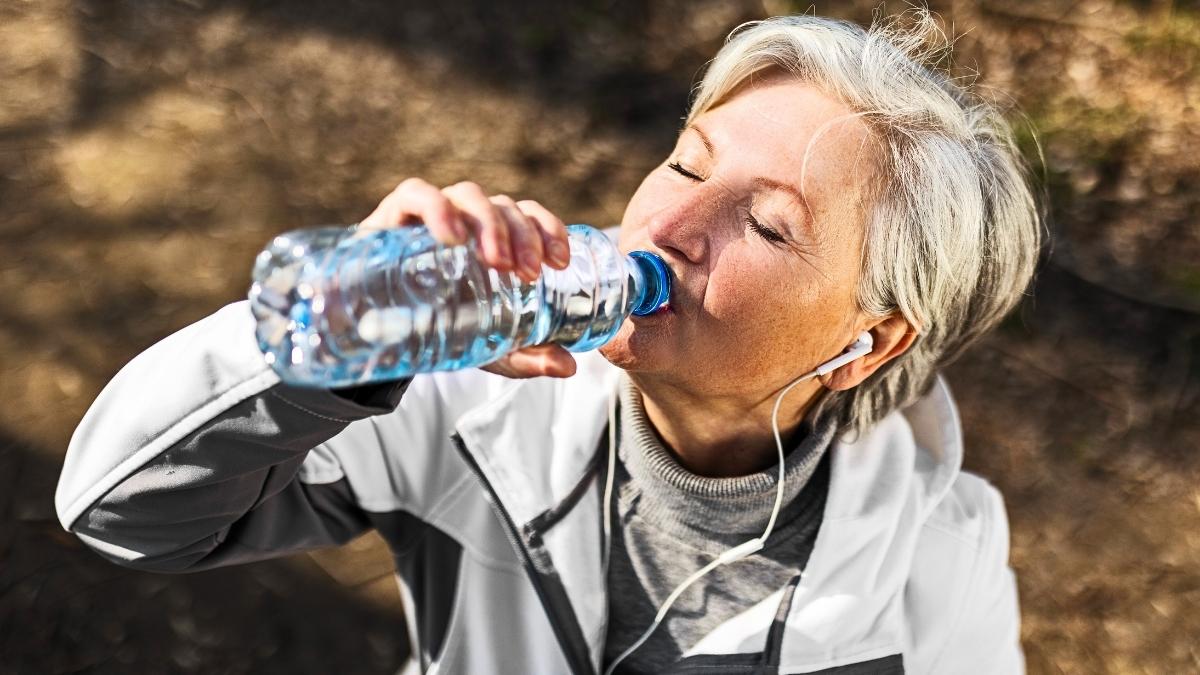
You must make drinking fluids a deliberate habit rather than waiting to feel thirsty. A simple trick is to keep a dedicated water bottle on your counter. Set a clear goal: empty it by lunch, refill it, and empty it again by dinner.
Remember, it is not just plain water that counts. You also get fluids from soups, herbal teas, and water-rich fruits like melons or oranges. The key is to be mindful and drink steadily all day long.
6. Practice Smart Medication Management
Taking several different prescriptions can be a real challenge. The risk is that different drugs can interact with each other in bad ways. This is a very common issue for seniors.
Sometimes, a side effect from a new medicine can look just like a totally new health problem. This can be confusing and scary. This is why smart medication management is not just for convenience; it is a critical safety issue.

Here is one of the best things you can do. Once a year, put all your medicines in one bag and take them to your doctor or pharmacist. This includes your prescriptions, over-the-counter pills, vitamins, and any supplements. This “brown bag review” helps them spot problems.
For daily use, a weekly pill organizer is your best friend. It is a simple tool that helps you see exactly what you need to take and when. It is the easiest way to prevent missing a dose or accidentally taking one twice.
7. Commit to Lifelong Learning
Your brain needs exercise, just like your muscles. It’s easy to worry about your memory, but you have power here. This is the “use it or lose it” rule for your brain health.
Here’s how it works. Your brain can form new connections at any age. But it only does this when you challenge it with something new. This is what keeps your cognitive function sharp.
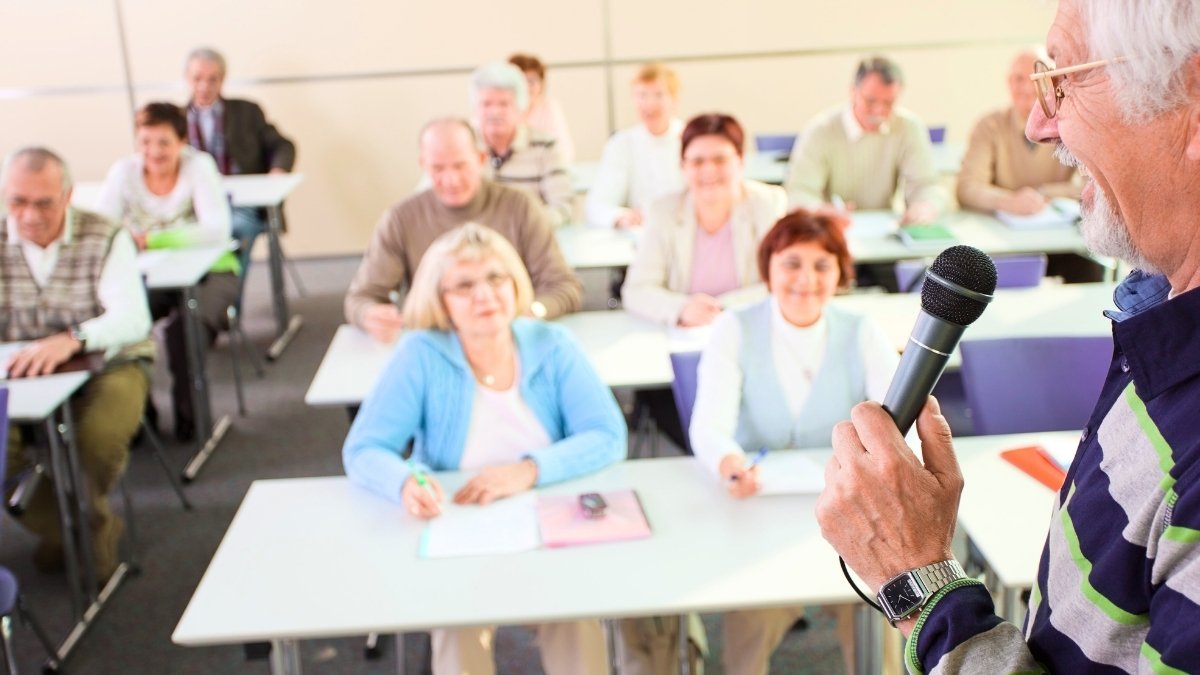
This is not about doing the same simple brain games over and over. True improvement comes from novelty. Try learning a new language on an app or taking an online class.
Even just picking up a musical instrument or mastering a complex new recipe works. This challenge is what keeps your brain active and healthy.
8. Build Your Stress Management Toolkit
Stress is not just a feeling in your head. It causes real, physical problems. Constant worry can raise your blood pressure and ruin your sleep. That’s why stress management is a key part of your health.
The first step is to know what makes you feel stressed. Is it worry over finances? Is it a health concern? Just knowing your triggers is a big help.

Next, you need a few simple tools to relax your mind and body. This doesn’t need to be complicated. You can try a 5-minute guided meditation.
You can also try deep-breathing exercises. Many people find that writing down what they are thankful for in a journal helps a lot. Even just spending a few minutes in nature can make a big difference.
9. Be Open and Honest About Mental Health
We must be honest about senior mental health. Many people feel sad, empty, or anxious but are afraid to talk about it. They might think it’s just a normal part of getting older.
Let’s be very clear about this. Depression is not a normal part of aging. It is a health condition, and it can be treated. It is always okay to admit that you are not feeling okay.
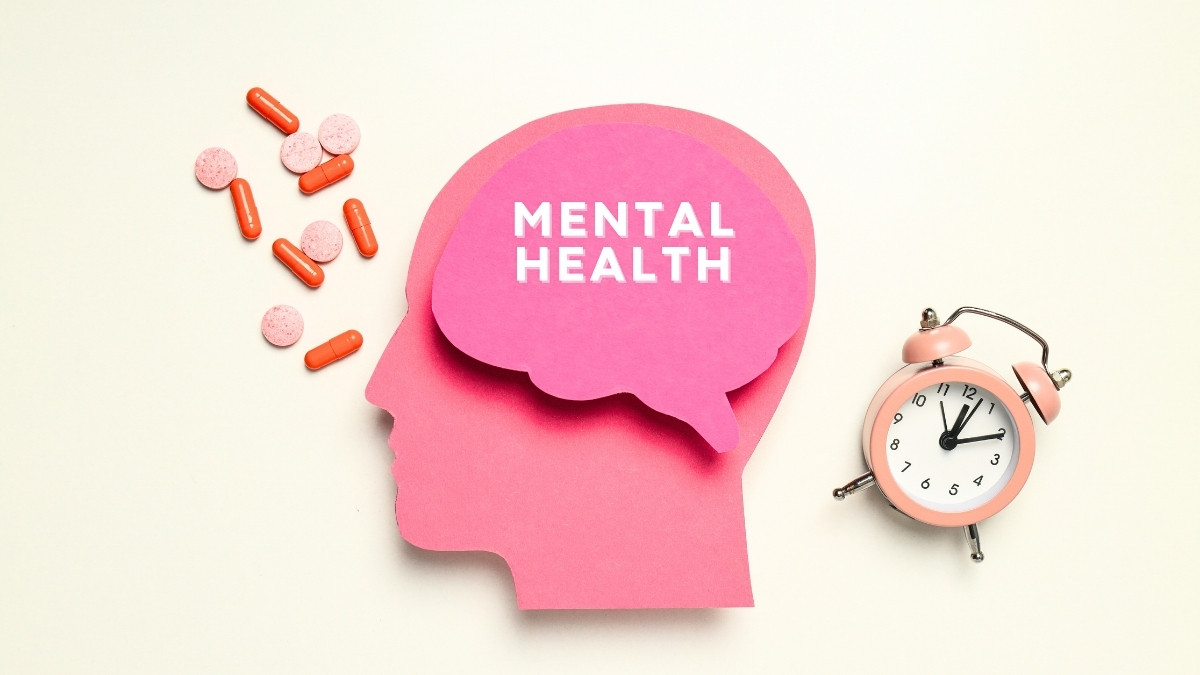
Watch for the signs. This might be a deep sadness that just won’t go away. It could be a total loss of interest in hobbies you used to love.
The most important step is connection. Talk to your friends, your family, or your doctor. If you are in a crisis, you can call or text the 988 Suicide & Crisis Lifeline at any time for support.
Here is the information for that pillar, broken into its three sections and following all your writing rules.
10. Actively Fight Social Isolation
Feeling lonely is not just a bad mood; it is a serious health risk. Many experts say that long-term loneliness can be as bad for your health as smoking 15 cigarettes a day. The National Institute on Aging links social isolation in seniors to higher risks for high blood pressure, heart disease, and cognitive decline.
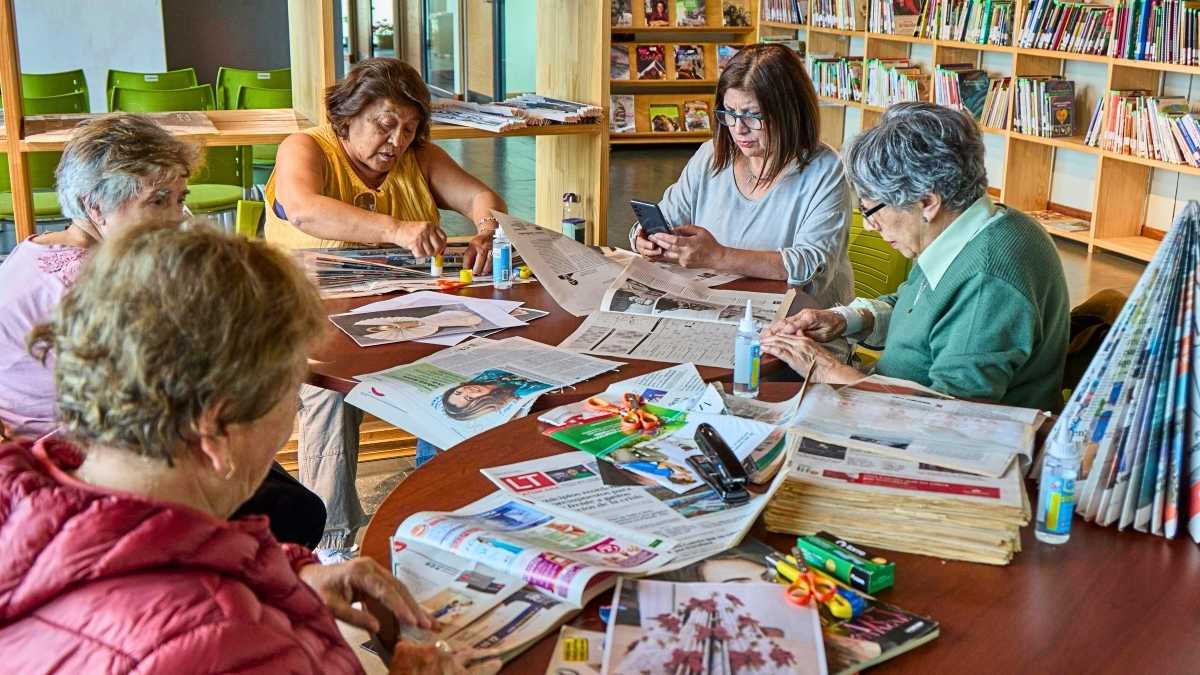
This shows that connecting with other people is a basic human need. It is not just a “nice-to-have.” As your life changes with retirement or moving, you have to actively work to stay connected.
You must be proactive. Schedule regular calls with family and friends. Look into joining a local club, visiting a senior center, or finding a place to volunteer. These meaningful activities are the best way to fight social isolation in seniors.
11. Find and Nurture Your Sense of Purpose
When you retire, it is common to feel a little lost. The routine and role you had for decades is suddenly gone. This can leave a “purpose vacuum.”
Having a “why” — a reason to get up and get going each morning — is a powerful part of your wellness. This sense of purpose helps you stay healthy and strong. Studies, like the Rush Memory and Aging Project, show that people with a high sense of purpose have better health.
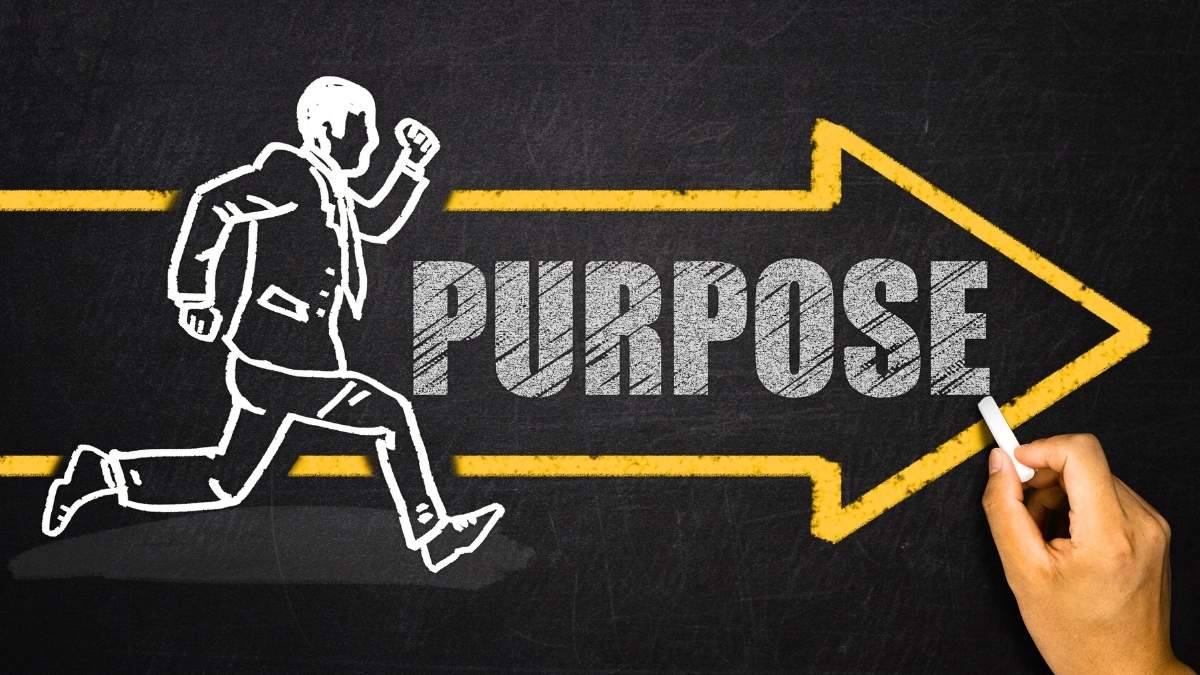
Your purpose does not have to be a big, world-changing thing. It just needs to be meaningful to you. It could be volunteering at the local library or animal shelter. It could also be something personal, like caring for a pet, tending your garden, or teaching your grandchild a new skill.
12. Prioritize Restorative Sleep
Sleep is not a luxury. It is not just “time off.” Sleep is when your body and brain perform critical repair work. When you do not get enough good sleep, everything else feels harder, from your mood to your memory.
It is common to have sleep problems as you get older. You might find it hard to stay asleep. You might also have a common issue like sleep apnea that you do not know about.
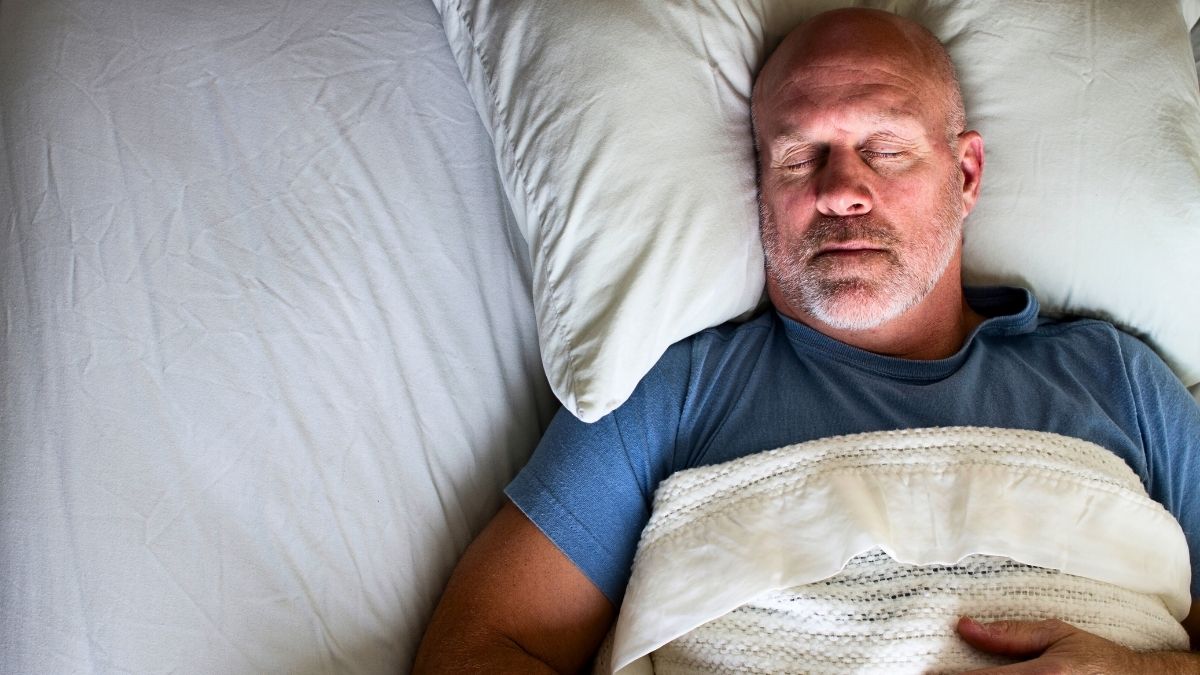
You can improve your sleep with good “sleep hygiene.” This means creating a routine. Keep your bedroom cool, dark, and quiet. Try to go to bed and wake up at the same time every day.
Here is a great tip: If you are in bed for 20 minutes and cannot fall asleep, get up. Go to another room and read a book or do a quiet activity. Go back to bed only when you feel sleepy. This trains your brain to see your bed as a place for sleep, not for worry.
Conclousion
Improving your senior wellness does not have to be a big, scary job. It is not one giant task you must finish tomorrow. It is simply the daily practice of these 12 small, manageable essentials.
True healthy aging is a balanced approach that helps your whole self. You nurture your body, sharpen your mind, and feed your soul. You do not have to tackle all 12 of these things at once.

Pick just one of these senior health tips that felt important to you. Make a simple plan to focus on just that one thing this week. We would love to hear from you. Share in the comments: Which essential will you start with?
Discover 12 essential senior health tips for a vibrant life. Our guide covers everything from fall prevention to **brain


